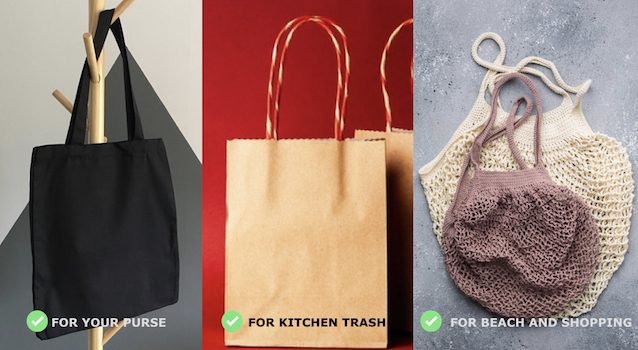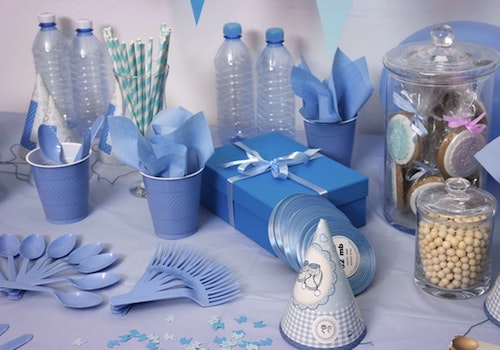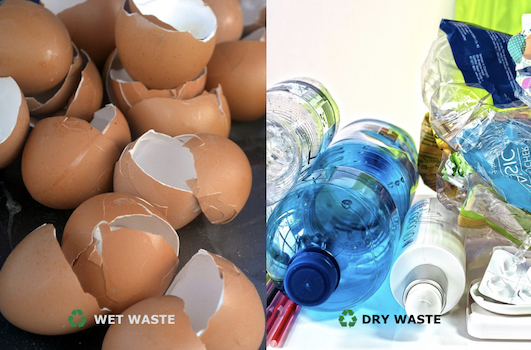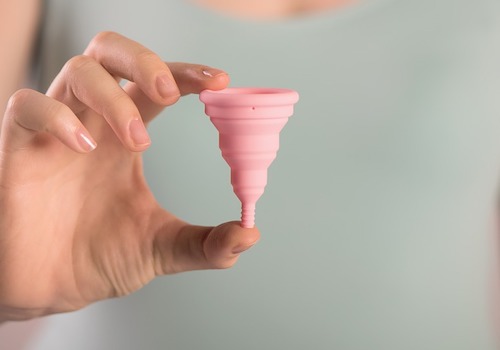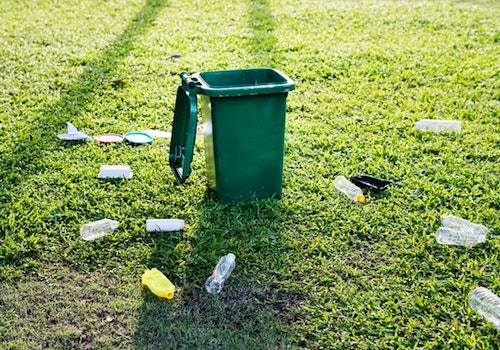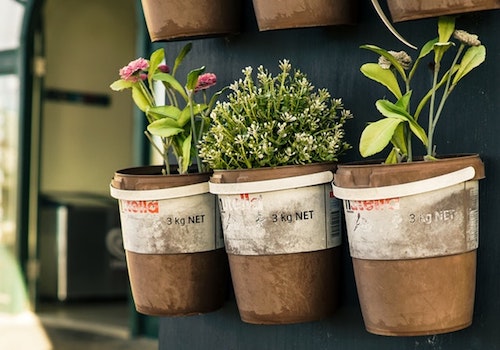Being environmentally conscious is the need of the hour. Here are some simple tips and ways in which you can do your bit and help save the environment.
Have you been thinking about relocating to a different city because the air quality in your city has deteriorated ? OR
Does the water scarcity news keep you feeling overwhelmed most of the time ? OR
Have you been worried about the massive food adulteration that might have serious consequences for your health ?
The above mentioned are just a few of the many challenges any of us are facing at this point of time and somewhere, all of these have their roots in the mis-management of the natural resources, we have.
Incessant exploitation of the environmental resources has definitely helped us progress in leaps and bounds but all of this has come at the cost of scarcity and pollution of air, water and soil resources.
Safe and clean environment is of paramount importance for our existence. While it’s obvious to expect from regulatory bodies to develop a policy framework and undertake projects for environment conservation and awareness, we as individuals can do our bit by making a few minor changes in our day to day routines and general habits.
So, here are some ways that are hassle free to implement, easy to follow and can help us in being environmentally friendly :
1. Replace Polythene Bags with the Eco friendly Jute/ Cloth/ Paper bags
Always ensure that you carry a spare cloth or jute bag in your purse or vehicle so that as and when a requirement arises, you can put your shopped products, grocery items in them and carry instead of purchasing goods in a polythene bag.
Mostly, it is seen that the polythene bags which we apparently get for free from the shops get used for throwing the garbage that we generate in our homes. So, instead of using polythene bags, use paper bags or newspaper or directly a garbage bin.
Quick Facts
- How long does it take for a polythene bag to decompose? : 10 – 1000 years
- As per a CPCB (Central Pollution Control Board) study for the year 2011-12, we were generating 25,940 tonnes (about 2,594 truckloads) of this waste per day that went uncollected. With a 10% year on year increase in India’s plastic consumption, imagine the amount of uncollected polythene waste we must be generating today.
- This waste doesn’t have enough value in the recycling market. It is priced at Rs.4 a kg which doesn’t make much sense for ragpickers. – BloombergQuint
- This polythene waste chokes our rivers and drains, affects marine life, causes air, water and soil pollution which ultimately affects the environment and our health .
2. Reduce Plastic usage
This can feel like an impossible task because almost everything we use on a daily basis is made out of plastic. Example : Toothbrush, toothpaste tubes, chairs, tables, cutlery, product and food packagings, water and juice bottles etc…. etc.
This is how you can use lesser plastics on a day to day basis and be eco friendly :
- Opt for cartons or tetra packs instead of bottles.
- Avoid using plastic cutlery, straws, stirrers etc. instead use steel or glass alternatives.
- Reuse plastic packs and other packaging for storage. Example : confectionary jars and bottles can be used for storing lentils, grains, some grocery items.
- Carry your own water bottles instead of purchasing newer ones from the market.
- Earbuds can be replaced with cotton bulbed over thin wooden sticks.
- Use Plastic jars and bottles for growing a garden.
- Use shampoo bars, soaps instead of shampoos packed in bottles, body wash and face wash.
Quick Facts
- How long does it take for a plastic bottle to decompose? : 450 years or more
- As per PlastIndia Foundation, India consumes approx. 16.5 million tonnes (about 1.6 million truckfulls), of plastic in a year. Of which, 43% serves as single-use packaging material that gets discarded after one use. In all, 80% of the total plastic produced in India gets discarded. – BloombergQuint
3. Segregate wet and dry waste
This is an easy task to do.
Have a separate collection box or paper bag for kitchen waste or wet waste. This includes fruit and vegetable peels, seeds, egg shells, chicken or meat bones, any leftovers, flowers, leaves and any other organic waste.
Collect the dry waste separately that includes plastic, glass, metal, wood, paper etc. Bottles, plastic containers, plastic packets or polythene packs that were used for storing food items like milk, curd, curries and shampoos, medicines, cleaning liquids should be first cleaned or rinsed and then discarded in the dry waste bin.
Similarly, any sanitary or bio medical waste that comprises of used pads, condoms, diapers, blood and medicine stained cotton and gauges should be collected and discarded separately.
4. Replace Sanitary Pads with Menstrual Cups
It makes sense to talk about menstrual cups here since we just spoke about sanitary waste.
Menstrual cups are an eco friendly alternative to pads and tampons. Whereas the conventional products belong to more of a use and throw category, the menstrual cups have a shelf life of 2 – 4 years. Thus, dramatically reducing the amount of menstrual waste generated by a household.
Quick Facts
- How long does it take for a Sanitary pad to decompose? : 500 – 800 years
- As per Clean India Journal, India uses 432 million pads every year, thus generating about 9000 tonnes of sanitary waste.
- Further, our discarded pads are manually segregated by workers making them prone to life-threatening diseases like hepatitis and tetanus. – NDTV
5. Do not Litter
Littering causes trashy and messy surroundings. It jeopardises the very purpose of segregation and is a sign of people’s irresponsible attitude towards proper waste management.
Be environmentally friendly, by ensuring that you throw the waste at it’s right place which might require some extra effort but is definitely, worth the attempt.
6. Grow a Garden
The ‘concrete-ization’ of our cities and rural areas has caused unabated cutting of the jungles. Green spaces have dramatically decreased with pollution levels hitting through the roof and natural calamities like floods, storms and draughts becoming commonplace.
A simple solution to reverse this phenomenon and restore the natural balance is to plant more and more trees. Some simple ways of increasing the green cover are :
- Gifting saplings on occasions like birthdays, anniversaries etc.
- Having indoor plants if you can’t have a garden.
- Volunteering for activities like planting trees, reviving lakes, cleaning your society, in short, anything that helps you do something for the environment.
- Recycling your tin and plastic cans, wooden crates, old tires etc. to grow plants.
- Adopt a Tree – Choose a spot where you can plant a sapling and take care of it, till it becomes a full grown tree.
- When you go in for long drives, make it a point to throw seeds (fruit, medicinal trees etc) on to sides of the highways/roads. You never know which one grows into a tree.
Quick Facts
- www.grow-trees.com – This website helps you to plant trees in the name of your dear ones, through nominal contributions. The trees are planted in rural communities, wildlife and forest areas, holy environments etc. In the last 10 years, they have planted more than 4 million trees.
7. Use water judiciously
Water is the most over used and under appreciated natural resources. We need water for practically everything we do for living. That is what makes it’s conservation even more important.
A few ways of doing this right at home are:
- Close faucets and taps properly.
- Recycle water whenever possible like that used for washing vegetables can be used in gardening, the one used in washing machine can be used in toilet.
- Don’t leave the water running while brushing, washing utensils, clothes, driveways and sidewalks.
- Use washing machines only for full loads.
- Be aware of any leaks in pipes, tanks, sprinklers etc.
- Install Rain water harvesting systems at home.
Quick Facts
- As per NITI Aayog Report (2018), By 2030, 40% of Indian Population will not have access to drinking water.
- We are using more ground water than it is replenished every year. – Central Ground Water Board Report, 2018.
8. Switch off electronic devices when not in use
Energy Conserved is Energy Generated.
A major chunk of electricity we use comes from the exploitation of natural resources like water, coal, natural gas, oil etc which are finite. When we consume less electricity, we are creating a lesser demand which means that lesser of these finite natural resources would be used to produce that electricity.
Another way of saving and generating electricity is by switching to renewable resources like wind and sun.
Quick facts
- During Earth Hour on March’30, 2019, Delhi alone, saved a total of 258 MW (Megawatts) of electricity.
9. Say No to Fast Fashion
Are you somebody for whom the fashion trickles right from the ramps to the wardrobe? Your closets are full of trendy clothes yet you feel like you have nothing to wear !! Well, you are not alone.
While it’s okay to be a fashion devotee, the habit of hoarding every trend you get to see just doesn’t make sense for the environment and your pocket.
Fast Fashion has not just led to an increase in demand and consumption of clothes but has also increased our rate of discarding used clothes which are ending up in landfills and water bodies.
Not to forget that a huge chunk of these clothes are man made (not natural like cotton and silk) or microfibres and employ the use of environment invasive chemical dyes.
A few ways of practicing mindful fashion are :
- Switch to natural fibres and fabrics like cotton, linen, silk and wool. Avoid microfibres, polyester, nylon, spandex, acrylic etc because they are not biodegradable.
- Take proper care of your clothing items that adds years to their life.
- Purchase more of basic fashion rather than trends.
- Donate clothes that are in good condition and you don’t wear anymore.
- Use those as rags and for cleaning purposes which cannot be given to anyone.
- Be a little creative, use old clothes to create new looks or up-cycle them into something new.
- Look for places/ websites where clothes can be swapped or sold to those who need them.
Quick Facts
- How long does it take for Man made fabrics to decompose? : 20 – 200 years
- Fashion Industry is the second biggest consumer of water. It generates 20% of waste water and causes way more greenhouse gas emissions than international flights and maritime shipping combined. – Foodtank
- As per a joint report from Assocham and PwC, if we keep purchasing and throwing clothes at the same rate, by 2050, we would need a landfill that’s the size of New Delhi to dump all of these. – Vogue
10. Go Paperless
The use of technology has successfully helped us replace hard files and folders with those in our smartphones, laptops, USBs and hard drives.
With all of that in place, we still use a lot of paper that is avoidable. How, let’s see :
- Get and pay your bills online.
- Use your phones to create shopping lists or reuse paper.
- Print on both the sides, not just one.
- Avoid using paper napkins, boxes and cutlery.
- Always carry a fabric shopping bag.
- Develop the habit of reading e-books and e-newspapers.
11. Go Organic
Everything that we ingest has chemicals in them. These chemicals pollute our bodies and environment thus resulting in various diseases.
A few ways in which we can ensure that we are consuming and using good products are:
- Purchase and use lab tested organic products.
- Replace lotions, creams, shampoos and body washes with coconut, olive oils and home made shampoos, packs and masks.
- Are you aware that many soaps, body cleansing and exfoliating products, tooth pastes, make up products etc. contain Microbeads that are minuscule plastic pieces deliberately added to the products. To know, if your product contains them, look for polyethylene or polypropylene in the ingredient list.
- Cultivate vegetables at home in the garden or in pots.
- Instead of getting packed snacks from super markets, make those at home. The home made versions are undoubtedly healthier and hygienic.
- Any cleaning products used at home should be natural not chemical because these further pollute water and soil and become a part of the food chain.
12. Eco friendly celebration of festivals
India is a land of varied cultures, beliefs and faiths and that is why, we have festivals throughout the year. It’s important that we celebrate our festivals in a way that is eco friendly and doesn’t harm the environment. Example:
- On Holi, use organic colours and celebrate it dry, to avoid water wastage.
- On festivals like Navratri, Ganesh Chaturthi etc, deity idols made out of mud/clay can be used rather than those made out of Plaster of Paris or Plastic so that the mud easily dissolves in water when idols are immersed. It’s really a bad sight to find our beloved gods floating in litter after the festival is over.
- On Diwali, avoid crackers to prevent air pollution.
- On festivals like Eid and Christmas, the animal slaughtering produces methane and carbon dioxide that’s harmful for the environment. Switching to plant based foods can help.
- A lot of plastic is used in decorations. Instead paper, cloth and flowers must be used.
- Use of loudspeakers during celebrations causes noise pollution.
Quick Facts
- Lighting crackers releases Particulate matter (PM2.5) in the air that can cause heart stroke, asthma and impact mental health.
- Noise Pollution can lead to high stress, hypertension, hearing loss, tinnitus etc in individuals.
With just a little effort, we can contribute to the betterment of the environment. All we need to do is Be Aware and Spread Awareness among the people we know. We have been a lucky generation who has seen the beauty of the past, appreciates the current technical advancements and understands the perils of the incessant exploitation and deliberate ignorance towards environment. Hence, instead of sitting and waiting for regulations and policies to percolate from the top to the bottom, let’s work towards having a better environment for our generations to come.


